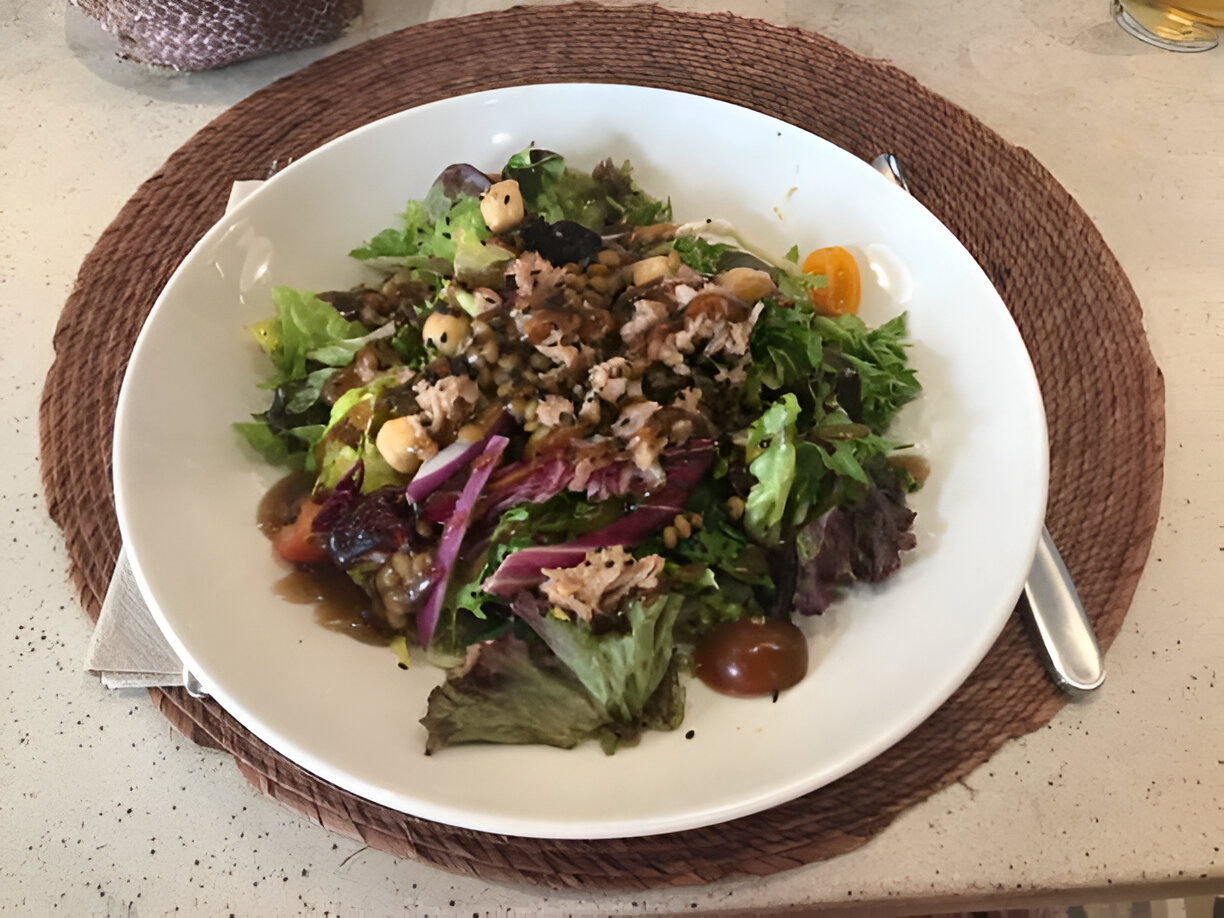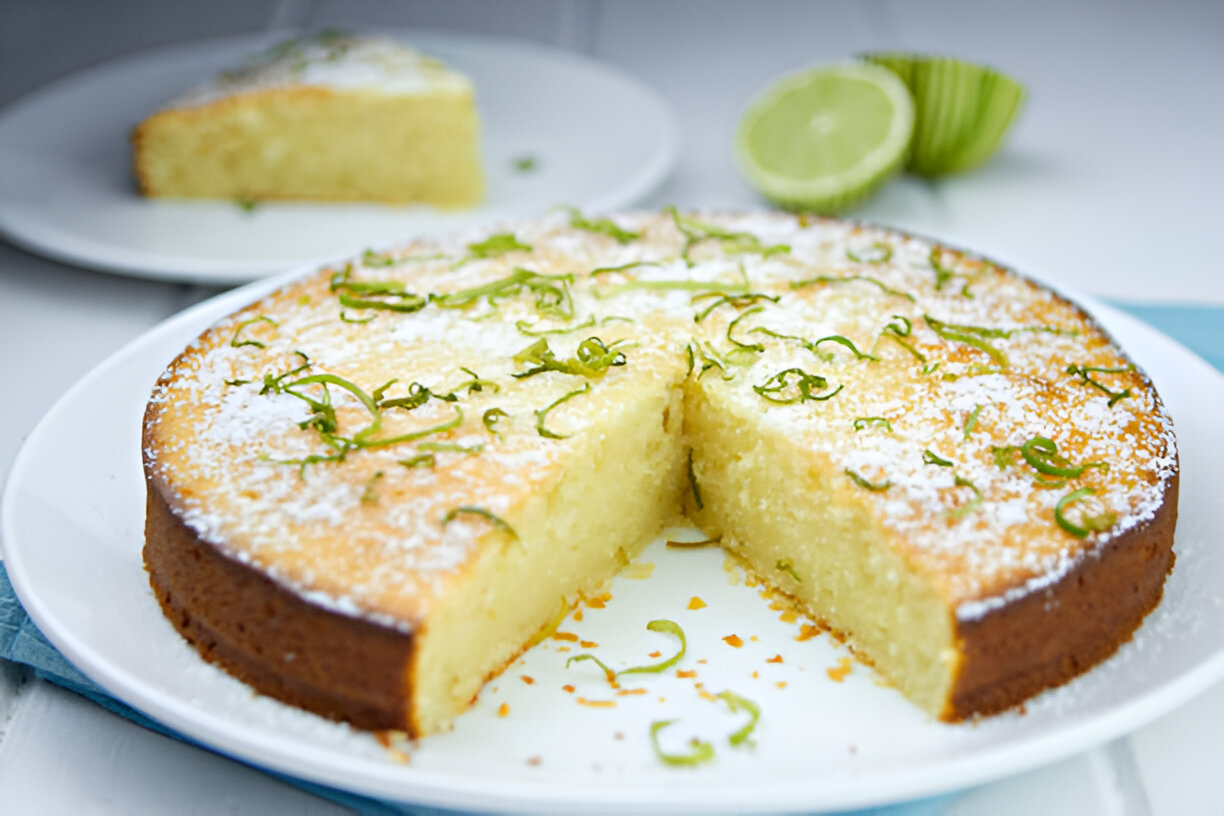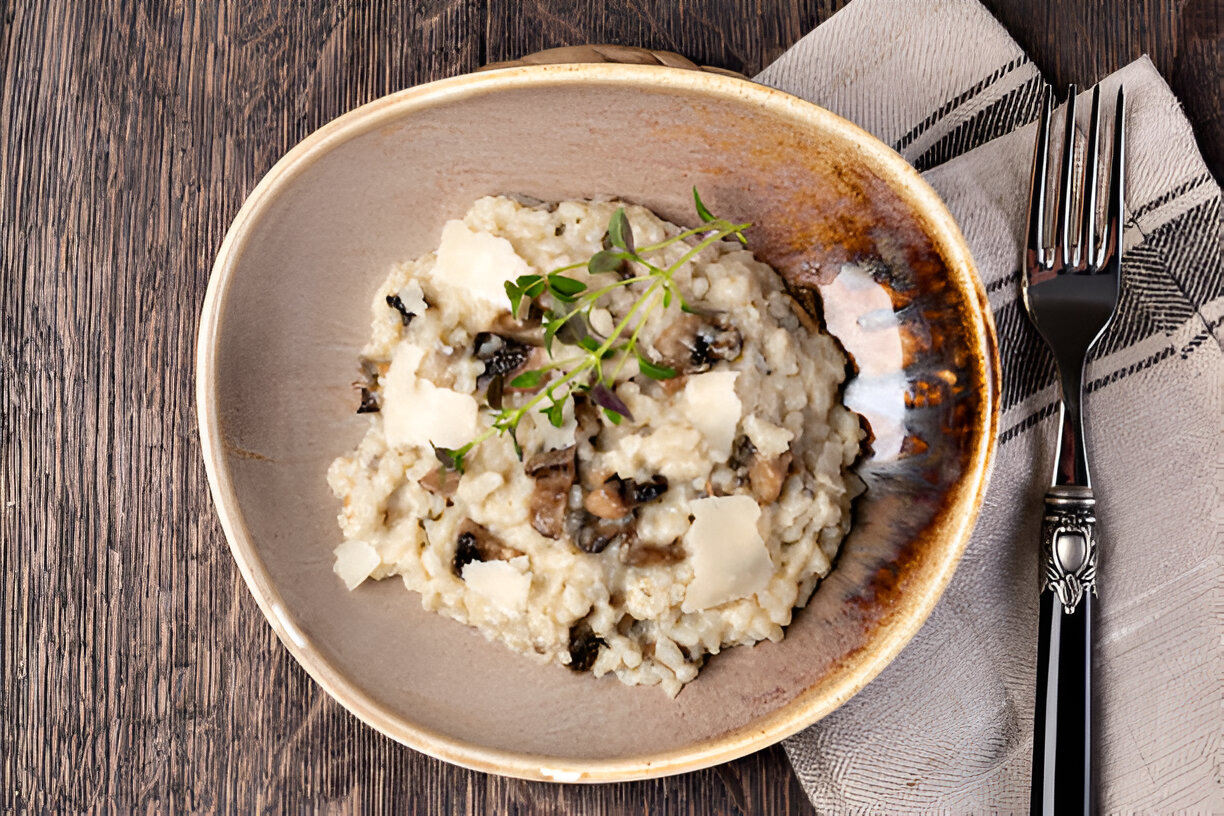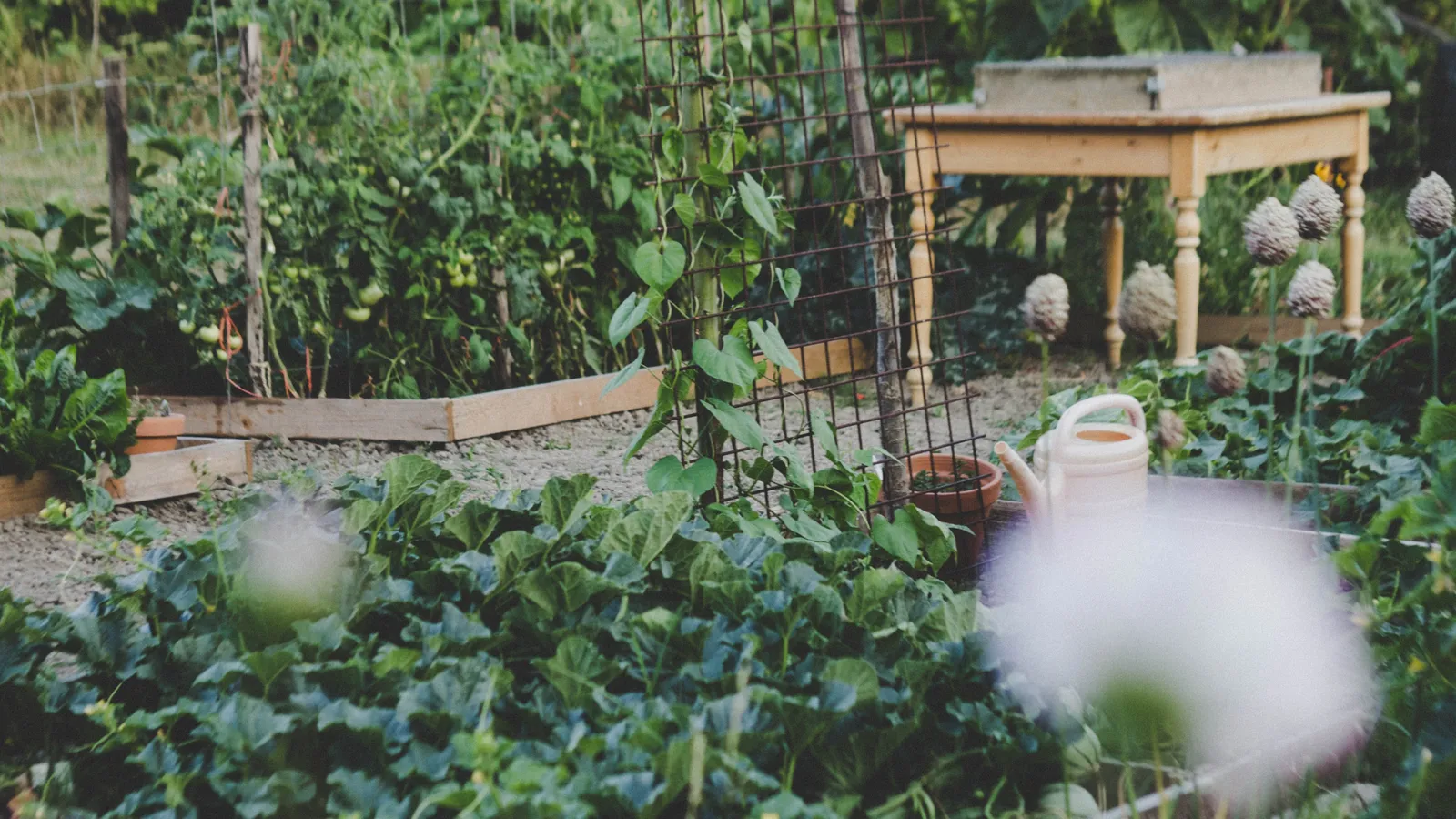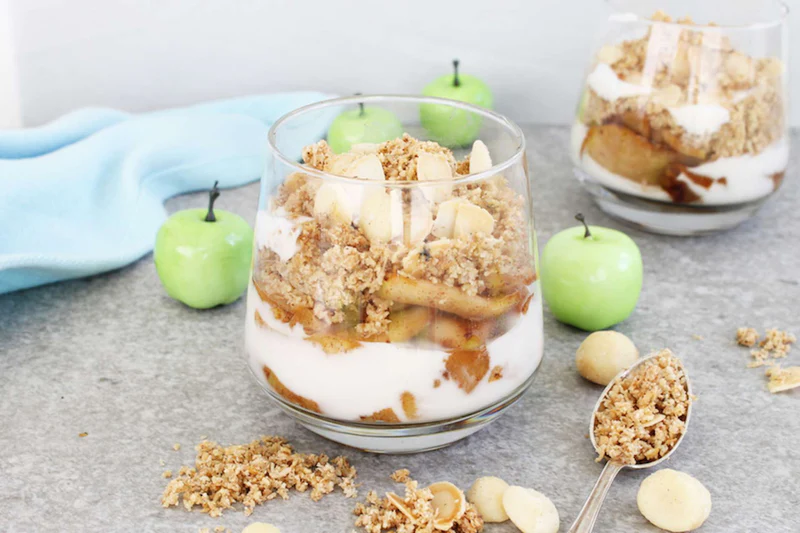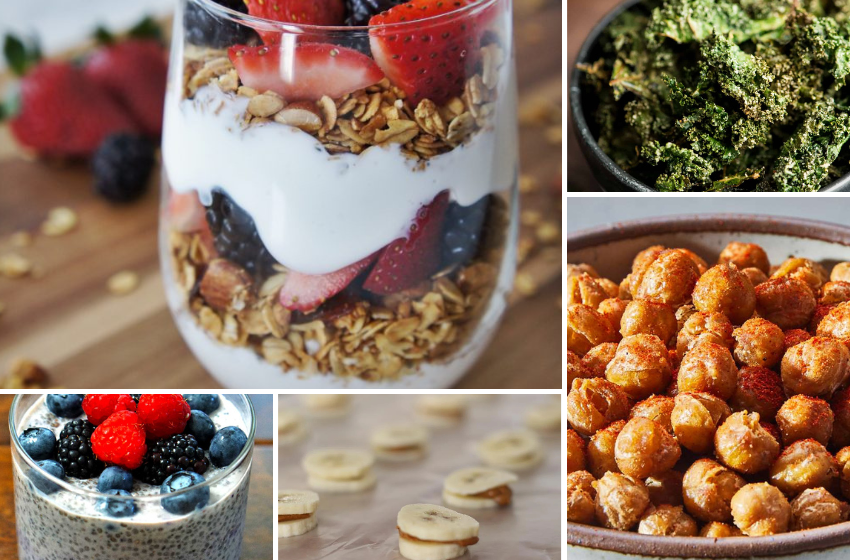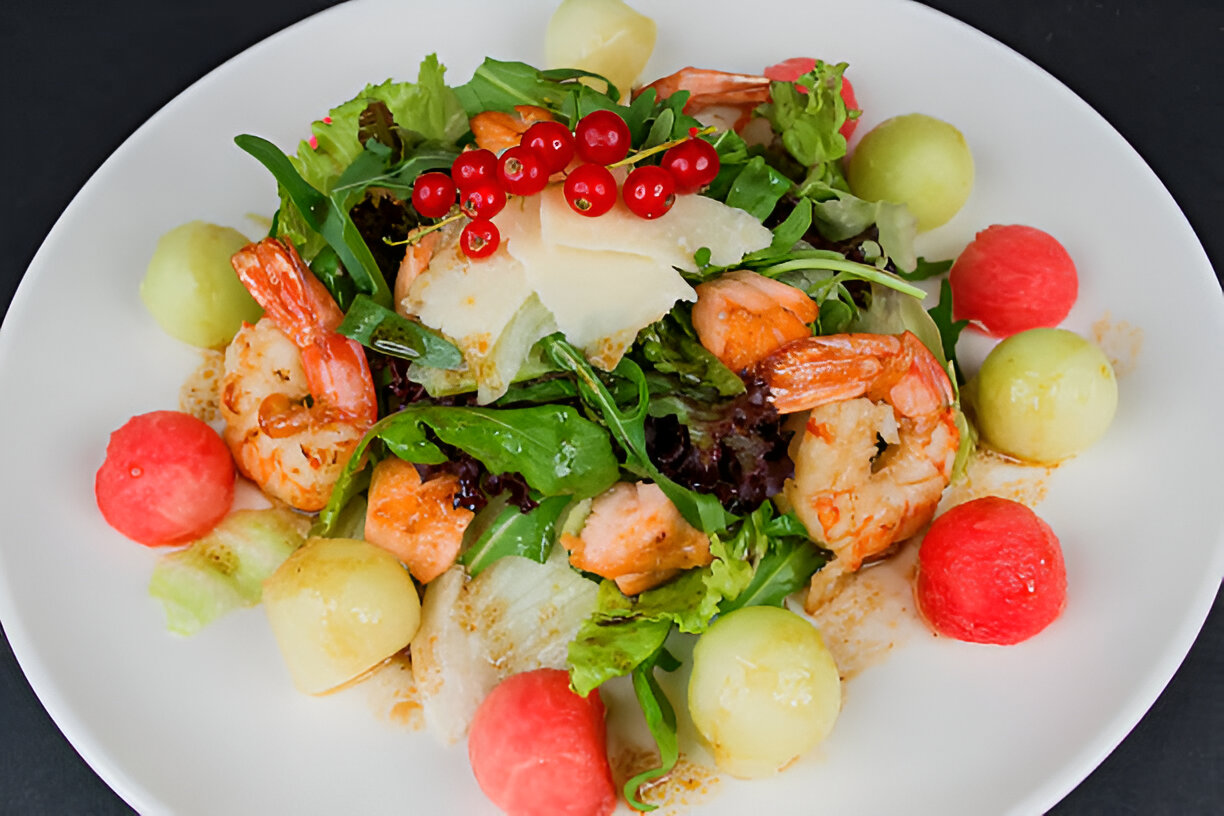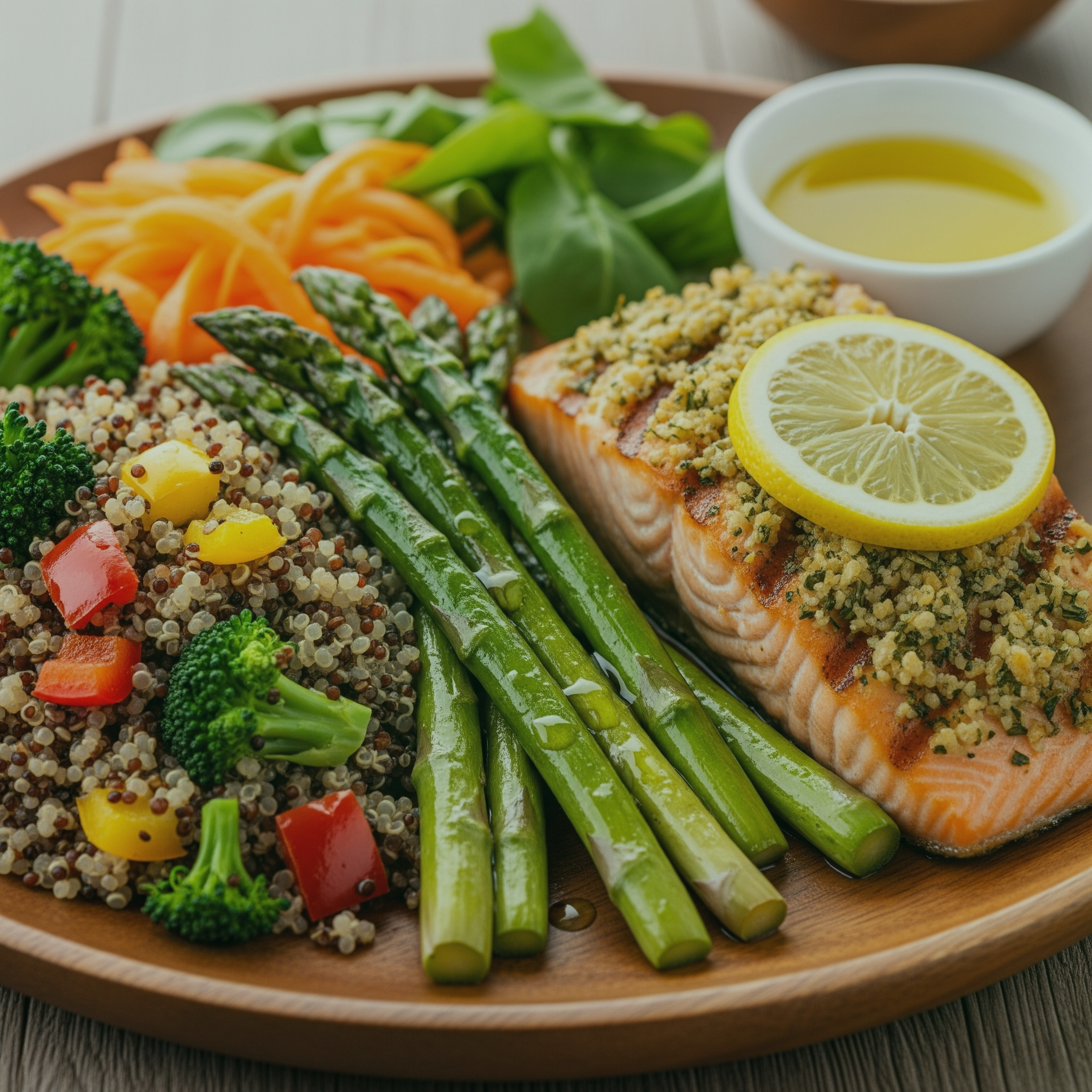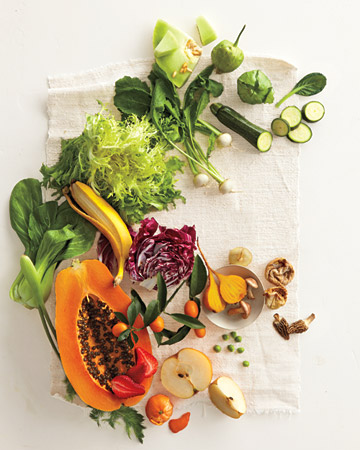In This Article
Let me guess—you've been feeling off lately. Bloating. Brain fog. Random food sensitivities that seem out of nowhere. Maybe you've heard whispers about leaky gut and wondered, “Could that be me?” If so, you're not alone. The truth is, more people are struggling with gut issues than ever before. And here’s the good news: probiotics for leaky gut may be the natural support your body has been craving.
Your gut isn’t just a digestion machine. It’s a complex ecosystem that impacts everything from your immune system to your mood. When the intestinal lining becomes damaged, it can lead to increased intestinal permeability, also known as leaky gut syndrome. This means tiny particles—like bacterial toxins or undigested food—slip through the gut wall, triggering inflammation and a cascade of unwanted symptoms.
You might experience fatigue, breakouts, joint pain, or unexplained bloating. These signs are your body’s way of asking for support. And that support can begin with the foods you eat, the habits you build, and the gut bacteria you nurture.
But you’re not powerless. With the right tools, including nourishing foods and supportive probiotic bacteria, you can strengthen your gut barrier function, ease digestive symptoms, and feel like yourself again. So, let’s begin gently, one step at a time, walking together toward balance and whole living.
What is Leaky Gut, Really?
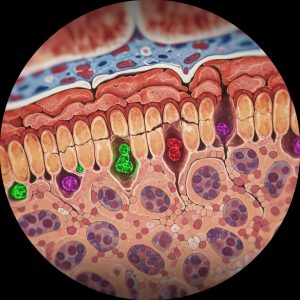
Your gut is designed to protect you. It acts like a barrier, allowing nutrients in and keeping harmful substances out. But when that barrier weakens, a condition called leaky gut occurs. Also known as increased intestinal permeability, it means the tight seals in your intestinal lining aren’t holding like they should.
When this happens, things that should stay in your digestive tract—like toxins, bacteria, or undigested food—can leak into your bloodstream. Your body sees them as invaders, triggering an immune response. Over time, this can lead to gastrointestinal symptoms, fatigue, skin issues, or even autoimmune diseases. Chronic inflammation becomes the norm, not the exception.
Conditions like celiac disease, ulcerative colitis, irritable bowel syndrome, and Crohn’s disease are often tied to poor intestinal barrier function. So are many unexplained issues like joint pain, mood swings, and chronic bloating. These issues aren’t just in your head—they start in your gut, often from damage to the intestinal epithelium and the breakdown of tight junction proteins.
And while the science is still evolving , one thing is clear: supporting your intestinal epithelial cells and reducing intestinal inflammation can make a big difference. You can restore your epithelial barrier and reduce the discomfort that comes from leaky gut symptoms. This healing starts with simple steps. The first is understanding what’s really going on inside.
The Power of Probiotics in Gut Healing

Now that you understand leaky gut, let’s talk about a natural way to help it heal: probiotics for leaky gut. These are the helpful microorganisms—tiny living allies—that live in your gut and support everything from digestion to immune response. When the balance of bacteria is off—called gut dysbiosis—it can lead to increased intestinal permeability, inflammation, and a weakened intestinal barrier.
Probiotics help bring balance back. They support the repair of your intestinal lining by encouraging tight junction strength and improving the function of your intestinal epithelial cells. They also help push out pathogenic bacteria, calm inflammatory cytokines, and ease symptoms of irritable bowel syndrome and other gastrointestinal diseases.
Some specific probiotic strains can even reduce intestinal permeability, lower chronic inflammation, and support the production of short chain fatty acids—tiny compounds that feed your intestinal wall and boost gut barrier integrity. All of this adds up to better digestive health and fewer uncomfortable symptoms.
Think of probiotics for leaky gut as gentle gardeners. They tend to your gut lining, support the intestinal mucosa, and create a more peaceful environment inside your body. Adding more of these helpful microbes—through food or supplements—can offer relief, resilience, and a renewed connection to your body’s natural healing abilities.
Lactobacillus Plantarum: The Peacekeeper
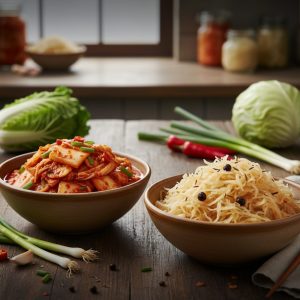
This powerful probiotic doesn’t just survive the journey through your digestive tract—it thrives. Lactobacillus plantarum is known for its ability to reduce intestinal inflammation, support tight junctions, and help heal the intestinal epithelium. It works quietly and consistently, helping to calm the fire in your gut and restore balance.
If you’re dealing with leaky gut syndrome, this strain is a gentle friend. It plays a key role in strengthening the intestinal barrier, helping to decrease intestinal permeability and support the natural healing process. It's especially helpful for people with inflammatory bowel disease and symptoms related to chronic inflammation. You can find lactobacillus plantarum in simple, everyday foods like:
- Sauerkraut (unpasteurized)
- Kimchi
- Pickled vegetables (naturally fermented, without vinegar)
These foods bring not just flavor, but deep nourishment. They help restore harmony to your gut microbiome and feed your beneficial bacteria. Eating them regularly can support your gut lining and create long-term change in your digestive system.
With every bite of these probiotic-rich foods, you’re taking one more step toward a calmer, more resilient gut. This is the type of nourishment that supports you at the deepest level—one forkful at a time.
READ ALSO: Healthy Sweet Snacks To Indulge Without Any Guilt
Lactobacillus Rhamnosus GG: Gut’s Natural Defender
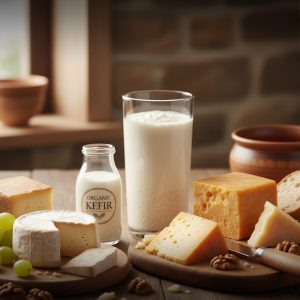
When your intestinal lining is under attack, lactobacillus rhamnosus GG steps in like a shield. This well-researched strain helps strengthen the intestinal epithelial barrier, calm inflammatory cytokines, and ease symptoms of irritable bowel syndrome (IBS). It’s also shown promise in supporting gut barrier function in those with celiac disease or small intestinal bacterial overgrowth.
These probiotics for leaky gut is like a first responder—quick to act, gentle in nature, and focused on helping your gut feel safe again. It encourages healthy tight junction proteins, helps prevent bacterial translocation, and supports the restoration of your intestinal wall. You’ll find lactobacillus rhamnosus GG in:
- Yogurt with live cultures (look for labels that list the strain)
- Kefir (a fermented dairy drink)
- Some aged cheeses (like gouda or parmesan)
These foods are simple yet powerful. Including them in your weekly routine can help rebuild your intestinal barrier function, support your digestive health, and improve your overall well-being. They’re delicious, comforting, and rich in the very microbes your body needs to heal. So let this probiotic be a daily reminder: your body is capable of healing, one spoonful at a time. Give it what it needs, and it will respond in kind—gently, steadily, and with resilience.
Bifidobacterium Longum: A Gentle Warrior

If your gut is feeling inflamed and out of balance, Bifidobacterium longum may be the comfort your body has been asking for. This probiotic is well-known for its ability to calm inflammatory cytokines and support a balanced immune response. It doesn’t rush the process—it gently eases intestinal inflammation, offering support that’s steady and lasting.
Leaky gut syndrome often goes hand in hand with gastrointestinal disorders like irritable bowel syndrome, ulcerative colitis, or celiac disease. The reason? When the intestinal wall is irritated or compromised, the immune system can become overactive. That’s when flare-ups, discomfort, and digestive symptoms begin to take over. Bifidobacterium longum steps in to soothe that overreaction and reinforce your gut barrier function. You can nourish your body with Bifidobacterium longum through:
- Yogurt (with added Bifidobacteria strains)
- Fermented milks like kefir
- Miso (fermented soybean paste)
This probiotic for leaky gut also helps support intestinal epithelial cells by lowering increased intestinal permeability and restoring the strength of the intestinal lining. It works to maintain balance, reduce stress on your gut, and help you feel more like yourself again. Let each bite or sip remind you that healing is happening. With time, consistency, and gentle support, your gut can return to a calm, resilient state.
Saccharomyces Boulardii: The Unique Yeast That Heals

Not all probiotics are bacteria. Saccharomyces boulardii is a unique, beneficial yeast that plays a powerful role in gut health. If you’re navigating leaky gut symptoms, this strain might be the one you didn’t know you needed. It’s known for stopping bacterial overgrowth, calming irritation, and supporting healthy digestive enzymes.
This probiotic yeast is especially useful for those with ulcerative colitis, recurring diarrhea, or infections in the gastrointestinal tract. It helps to protect the gut from harmful invaders, including bacterial toxins, while improving the overall function of intestinal epithelial cells. In short, it brings strength where the gut feels most vulnerable.
Because it doesn't colonize the gut long-term, it acts like a visitor who cleans up, calms things down, and then leaves your system better than it found it. It’s even shown to reduce intestinal permeability and promote recovery from chronic inflammation and flare-ups linked to gastrointestinal symptoms. You can find Saccharomyces boulardii in:
- Specific probiotic capsules (check labels for the strain)
- Kombucha (fermented tea with live cultures)
- Some forms of brewer’s yeast supplements
This healing helper is especially good during or after antibiotic use. It protects your intestinal lining, prevents imbalances, and keeps your gut microbiome from tipping too far out of balance.
READ ALSO: Nutrition Solutions to Heal Your Relationship with Food
Bacillus Coagulans: The Traveler’s Best Friend
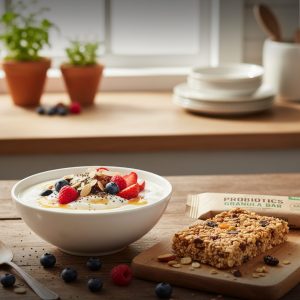
Some probiotics are sensitive. Bacillus coagulans is not. It’s a resilient, spore-forming probiotic that thrives in harsh environments—including your gastrointestinal tract. It’s ideal if you travel often, have a busy lifestyle, or are under a lot of stress. This strain offers support when your gut is at its most vulnerable.
Stress, long flights, unfamiliar foods—these can all upset your digestive system, leading to flare-ups of leaky gut, bloating, or stomach cramps. Bacillus coagulans helps calm these reactions and strengthen your intestinal barrier. It eases gastrointestinal symptoms, balances gut bacteria, and promotes a healthy intestinal environment. You can find Bacillus coagulans in:
- Probiotic-enhanced plant-based yogurts
- Probiotic granola bars or snack foods
- Fortified beverages like wellness shots
One of its superpowers is surviving stomach acid. Once it reaches the intestines, it supports the production of short chain fatty acids, feeds the intestinal epithelium, and helps reduce intestinal permeability. That makes it a true ally for healing and protecting the intestinal lining. Even if your days are full and your meals are rushed, this hardy helper travels with you, quietly supporting gut barrier function and helping you feel grounded from within.
Lactobacillus Acidophilus: The Foundational Probiotic
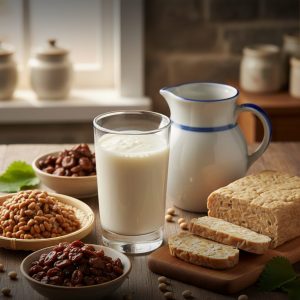
If there’s one probiotic strain that most people have heard of, it’s Lactobacillus acidophilus. And for good reason. It’s one of the most studied and trusted strains for everyday digestive health. Thes probiotics for leaky gut supports gut microbiota balance, encourages beneficial bacteria growth, and helps strengthen the epithelial barrier.
Whether you’re struggling with leaky gut syndrome, digestive symptoms, or just want to feel better in your belly, this is a strain worth keeping close. It supports tight junctions, helps soothe intestinal inflammation, and boosts the health of your intestinal lining over time. You’ll find it in:
- Yogurt with live cultures
- Buttermilk
- Fermented soy products (like tempeh)
It’s especially useful in people experiencing gut dysbiosis from antibiotics or poor diet. Lactobacillus acidophilus works like a restorer—bringing peace, rebuilding strength, and inviting in harmony. For those with irritable bowel syndrome or gastrointestinal disorders, it can help decrease intestinal permeability and ease daily discomfort.
The beauty of this strain is in its simplicity. No hype, no stress—just steady support that brings your gut health back into balance.
Lifestyle Tips to Support Your Gut
Healing your gut doesn’t start and stop with probiotics for leaky gut. It’s a whole-living journey—one that honors rest, movement, nourishment, and self-kindness. When you’re working to heal leaky gut, the little things truly add up.
- Move gently every day. Yoga, walking, stretching—these help stimulate digestion and reduce stress. Movement also supports digestive tract function and helps calm the immune system.
- Simplify your plate. Choose whole, unprocessed foods that are easy on the intestinal lining. Avoid overly processed ingredients that may irritate your intestinal barrier and feed pathogenic bacteria.
- Manage your stress. Chronic stress is a silent disruptor. It can harm the epithelial barrier function and trigger increased intestinal permeability. Practice breathing, journaling, or meditation to bring calm from within.
- Stay hydrated. Water helps carry nutrients, supports the intestinal tissue, and allows the gut to repair more efficiently.
These small, steady habits are like gentle hands supporting your gut barrier integrity. They don’t demand perfection. They invite consistency, grace, and patience. The result? A body and mind that feel more supported every single day.
Takeaway: Walking Toward Wholeness, One Step at a Time

Let’s be honest—gut healing can feel overwhelming. There’s so much advice out there, so many diets, so many terms. But here’s what I want you to know: you don’t have to do it all at once.
Using probiotics for leaky gut is not about perfection. It’s about slow, intentional progress. Each spoon of yogurt, each moment of rest, each mindful meal—that’s healing in action. Your body wants to recover. It’s working for you, not against you.
With the support of probiotic bacteria, nourishing foods, and compassionate habits, your gut lining can become strong again. Your digestive system can return to ease. And you can live with more energy, clarity, and peace.
Remember this: healing doesn’t have to be hard. It can be gentle, grounded, and joyful. You’re not alone on this path. Every small step you take is part of something beautiful—your return to balance, wholeness, and a life lived fully from the inside out.





